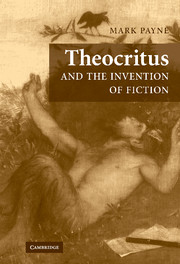4 - From fiction to metafiction
Published online by Cambridge University Press: 22 September 2009
Summary
Aristotle, as we have mentioned, thought of dramatic poetry as poetry from which the poet's own person was excluded, and praised Homer for approaching as closely as is possible in epic to this condition of drama. While other poets are constantly intruding into their poems, Homer, after a brief prologue, brings in a succession of dramatic characters who advance the plot through their interaction with one another (Poetics 24). Conversely Longinus, while fully acknowledging the dramatic quality of the Iliad, would read its drama not as an exclusion of the poet's self but as the form in which the vigor and plenitude of Homer's creative genius found their natural expression when the poet was at the height of his power. He contrasts this with the love of storytelling that marks the Odyssey and which is, he suggests, characteristic of the mellowing of Homer's power in old age (On the Sublime 9.13). The form of both poems may be understood as a projection of the poet's psychic life. While Aristotle sees drama as the goal to which all poetry should aspire, Longinus sees all poetry as, in effect, species of lyric that give concrete embodiment to the inner world of their writer in a variety of formal guises. Drama is simply the form this expression takes when the writer's need to externalize his inner life is most urgent and vigorous.
Longinus' position had long been anticipated by the Hellenistic poets.
- Type
- Chapter
- Information
- Theocritus and the Invention of Fiction , pp. 114 - 145Publisher: Cambridge University PressPrint publication year: 2007



